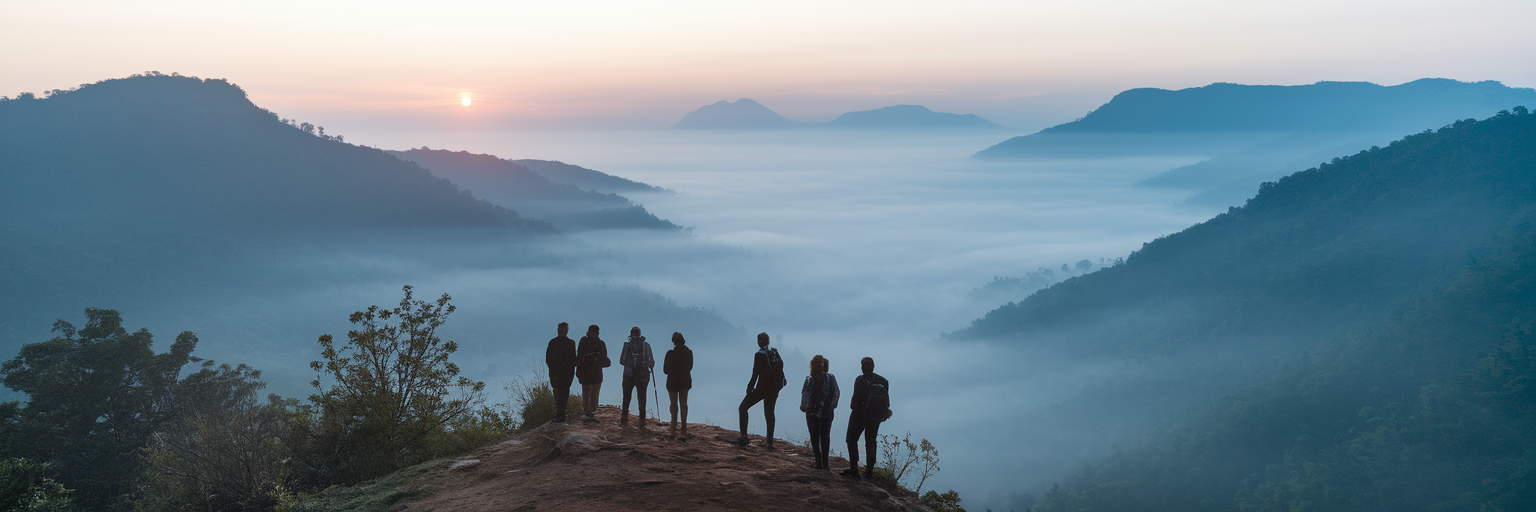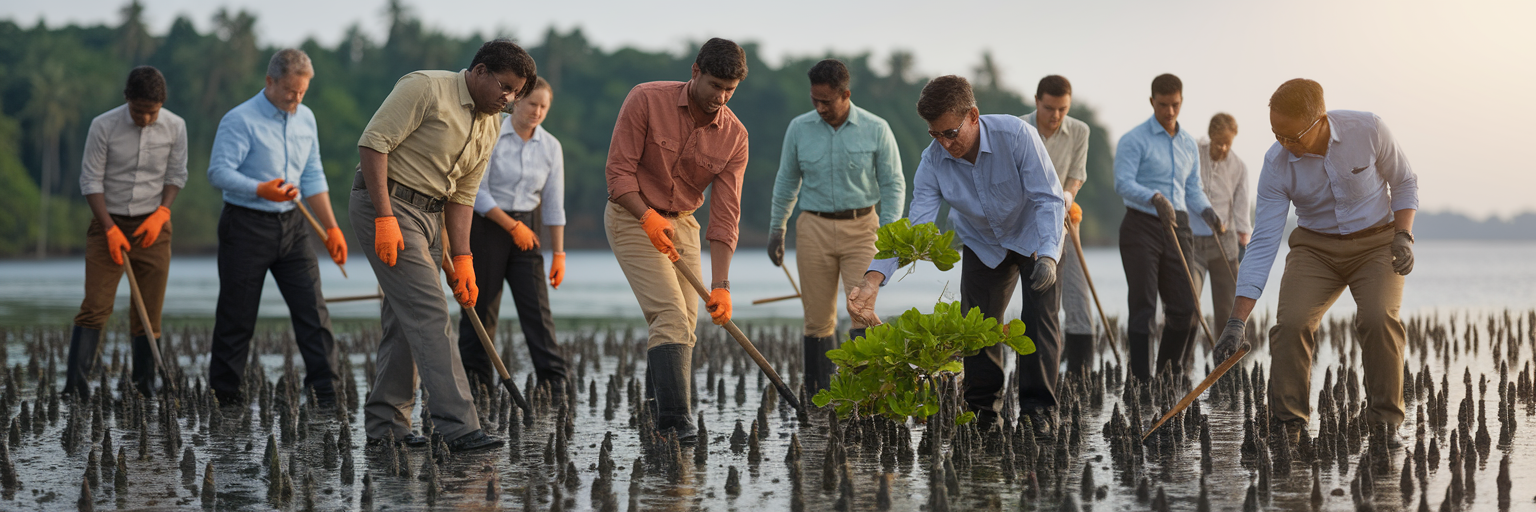Sri Lanka's Wild Heart: A Guide to Purposeful Incentive Travel
Learn to design impactful corporate incentive trips in Sri Lanka focused on wildlife conservation and community support.

Learn to design impactful corporate incentive trips in Sri Lanka focused on wildlife conservation and community support.

Sri Lanka is recognised as one of the world's 36 biodiversity hotspots, a distinction that immediately signals its natural significance. For corporate teams, this island nation offers a unique setting for purposeful incentive travel, an approach that moves beyond conventional rewards. Instead of just a trip, it becomes a strategic investment in team cohesion and a tangible expression of corporate social responsibility. The idea of sustainable incentive travel Sri Lanka is about creating experiences that resonate with company values.
What makes Sri Lanka particularly compelling is its compact geography. A single, thoughtfully designed itinerary can blend encounters with coastal ecosystems, highland cultures, and ancient forests. This allows teams to experience a rich tapestry of environments without long, carbon-intensive transit times. A journey here is not merely a vacation. It is a cohesive narrative that strengthens bonds, inspires participants, and leaves a positive, lasting legacy for both the team and the destination.
Observing wildlife in its natural habitat is a powerful experience, but how it is done matters. The difference between a memorable encounter and a disruptive one often comes down to the choices made during planning. For companies committed to genuine impact, focusing on ethical engagement is non-negotiable. This approach transforms a simple viewing into a meaningful contribution to conservation.
The thrill of spotting a leopard moving silently through the brush in Yala National Park is undeniable. However, this moment can be spoiled by a crowd of jeeps jostling for position. True responsible tourism Sri Lanka means partnering with certified guides who prioritise the animals' welfare. These professionals understand animal behaviour, maintain a respectful distance, and refuse to contribute to overcrowding. This ensures the encounter is authentic and minimally intrusive, turning a safari into a lesson in ecological respect.
Mirissa is famous for its blue whales, but the popularity of whale watching has created challenges. Standard boat trips can stress marine life, but ethical tours operate differently. They follow international guidelines for distance and speed, and many collaborate with researchers, contributing sighting data that aids conservation science. As highlighted in guides from sources like Luxury Holidays Asia, choosing operators who actively support marine biology is fundamental. This transforms the experience from passive viewing to active participation in protecting these magnificent creatures.
A guided walk through the dense, misty landscape of the Sinharaja Forest Reserve, a UNESCO World Heritage Site, is an immersion into an ancient ecosystem. Unlike a casual hike, a trek with a naturalist guide becomes an educational journey. Teams learn to identify endemic birds, understand the medicinal properties of native plants, and appreciate the delicate balance of a primary rainforest. These corporate wildlife conservation trips are not just about seeing nature, but about understanding its complexity and our role in preserving it.

While observing wildlife is profound, actively participating in conservation creates a different kind of connection. Hands-on activities serve as powerful team-building exercises, uniting colleagues through a shared purpose and producing tangible results. These experiences move beyond passive tourism, allowing teams to leave a place better than they found it and creating a powerful story of collective achievement.
Imagine your team working together, ankle-deep in a coastal lagoon, planting mangrove saplings. This is not a manufactured corporate exercise. It is a collaborative effort that directly restores a vital ecosystem, protecting coastlines and creating nurseries for marine life. The shared physical work and the visible outcome build a unique sense of accomplishment that translates directly back to the workplace. It is a practical demonstration of what can be achieved when everyone works toward a common goal.
Have you considered what "ethical" truly means when it comes to elephant encounters? It means rejecting attractions that offer rides or performances. Instead, support genuine sanctuaries where rescued elephants receive care. A visit can involve helping staff prepare food or observing the animals in a semi-wild environment where their well-being is the sole priority. The financial contribution directly funds their rehabilitation, making the team's visit a direct investment in animal welfare.
Sustainable travel is also about people. Instead of just buying souvenirs, teams can engage in workshops with local artisans, learning traditional crafts like pottery or weaving. Another option is visiting a community-run spice farm that uses organic methods. These interactions provide direct economic support and foster genuine cross-cultural understanding. This principle of ensuring ethical partnerships and empowering communities is central to our philosophy, and you can learn more about our approach to creating meaningful events.
| Activity | Primary Team-Building Value | Direct Conservation Impact | Logistical Considerations |
|---|---|---|---|
| Mangrove Reforestation | Collaborative physical task, shared goal | High: Restores vital coastal ecosystems | Seasonal; requires coastal location; moderate physical fitness |
| Ethical Elephant Sanctuary Support | Shared emotional experience, purpose-driven care | Medium: Supports welfare and rehabilitation | Requires vetting of sanctuary ethics; accessible to most fitness levels |
| Community Artisan Workshop | Creative collaboration, cultural immersion | Low (direct), High (economic support) | Supports local economy; fosters cross-cultural understanding |
| Habitat Cleanup in a Reserve | Unified effort towards a visible outcome | High: Immediately improves habitat quality | Can be physically demanding; requires partnership with park authorities |
The impact of an incentive trip is shaped as much by where you stay and how you travel as by what you do. For corporate planners, selecting partners who are genuinely committed to sustainability is crucial. This means looking beyond marketing claims and asking for proof of their environmental practices.
When searching for luxury eco-lodges Sri Lanka, it is important to look for properties that demonstrate a deep commitment to the environment. A truly sustainable lodge is defined by more than just its location. Consider these features as a practical checklist:
For transport, the iconic Kandy to Ella train journey offers more than just a low-carbon travel alternative. Winding through tea plantations and misty mountains, it becomes a memorable, shared adventure for the entire team. For other transfers, planning eco-friendly MICE events involves optimising routes to reduce travel time and using electric vehicles where possible. Partnering with certified carbon offsetting programs can also help mitigate the unavoidable footprint of group travel. The complexity of coordinating these elements highlights the value of the professional event management services we offer.

A successful purposeful incentive trip is a carefully crafted story. It requires weaving together exclusive experiences, meaningful contributions, and moments for reflection into a cohesive journey. The structure should feel intentional, with each day building on the last to create a powerful narrative that aligns with your company's mission.
Here is a sample framework illustrating how these elements can be combined into one of our Sri Lanka group travel ideas:
This structure balances reward with impact, ensuring the team feels both valued and inspired. Pulling off such a multi-faceted trip requires deep local knowledge and meticulous planning. An experienced partner is essential for vetting ethical suppliers, managing complex logistics, and tailoring the itinerary to your specific objectives. This is precisely the value of professional event management in turning a great idea into an unforgettable reality.